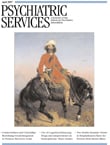Coping With Depression: From Catch-22 to Hope
The book Coping With Depression is outstanding. Jon G. Allen wrote this book for depressed patients, but he intends to help people who care for them as well. He achieves his goal. As a new therapist, I found this book to be a great tool.
Allen is professor of psychiatry and senior staff psychologist in the Menninger Department of Psychiatry and Behavioral Sciences at the Baylor College of Medicine. Only someone with as much experience as he has in treating depression could have paid so much attention to the limitations a depressed patient has to face.
Coping With Depression validates the severity of the disability caused by the illness, but the book remains hopeful. Allen uses simple techniques to engage patients limited by their symptoms, and he organizes his book in short sections to facilitate its use by readers with depression. He uses simple but metaphoric language to illustrate complex concepts.
This book could help anyone who struggles with depression, whether one is the witness of a depression or a casualty of it. Using the analogy of a "catch-22," Allen helps to generate compassion. He guides patients through each step in the development of their illness. Allen makes it clear that there is not just one cause of depression; he describes in simple terms the biopsychosocial approach as "stress pileup." Again, throughout the book, Allen offers advice to reach recovery; he gives hope.
If you are a therapist, read the book so you can recommend it to your patients. Be aware that you might skip some sections; Allen wrote this book for someone with no academic knowledge about depression. Nevertheless, professionals will find useful information in it and a real resource for patients.



